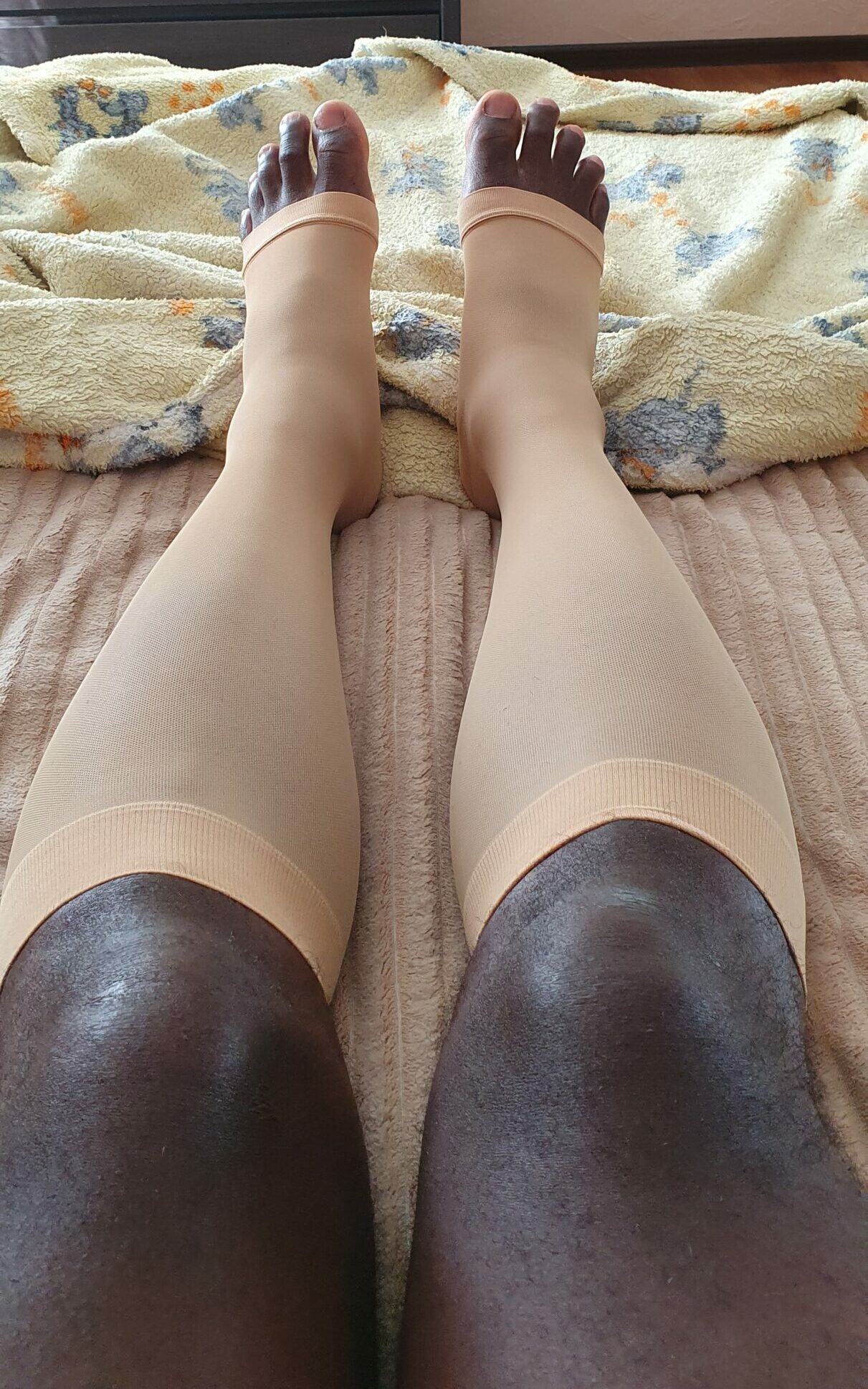Why You Should Wear Compression Socks to Bed Tonight
Have you ever considered slipping on a pair of compression socks before tucking into bed? It might sound a bit unconventional, but wearing compression socks to bed can actually offer a handful of benefits that could improve your sleep and overall health. So, why should you start this simple practice tonight? Keep reading and find out.

What Are Compression Socks and How Do They Work?
First things first, let’s clarify what Compression socks—or compression stockings—are. These aren’t just any ordinary socks. They’re specially designed to typically apply gentle pressure to your legs. This pressure helps promote blood circulation, reduce swelling, and even ward off the formation of blood clots.
Typically, the pressure is highest at the ankles and gradually decreases towards the knees. This design enables blood to flow back toward the heart more efficiently, which is crucial, especially if you have certain medical conditions or if you’re generally inactive for long periods.
The Surprising Benefits of Wearing Compression Socks at Night
Improved Circulation While You Sleep
When you’re lying down for several hours, your circulatory system doesn’t have to fight gravity quite as much as when you’re upright, but it still needs to keep blood flowing efficiently. Wearing compression socks to bed enhances this process, ensuring that blood doesn’t pool in your lower extremities. This is particularly beneficial for people with poor circulation or conditions like peripheral artery disease or chronic venous insufficiency.
Reduction in Swelling and Varicose Veins
Ever noticed how your legs and feet sometimes swell after a long day? Swelling (or edema) can be uncomfortable and is often worse at the end of the day due to prolonged sitting or standing. Wearing compression socks at night can help minimize this swelling. Moreover, for those prone to varicose veins, compression socks reduce the pressure in the veins of your legs, which not only eases the pain but can also help prevent new varicose veins from forming.
Prevention of Deep Vein Thrombosis (DVT)
This is a big one. Deep Vein Thrombosis (DVT) is a serious condition in which blood clots form in veins deep inside your body, typically the legs. If you have reduced mobility or are recovering from surgery, wearing compression socks while you sleep can significantly decrease your possibility of developing DVT by keeping your blood flowing.
Enhanced Sleep Quality
Annoying leg pains, restlessness, and even conditions like Restless Legs Syndrome (RLS) can disrupt your sleep. Compression socks may help alleviate these symptoms by improving your blood flow and reducing discomfort, leading to a more peaceful night’s sleep. Think about it: less discomfort equals better sleep!
Are There Any Risks?
While the benefits are clear, it’s also fair to address the potential downsides. Wearing compression socks is generally safe for most people. However, if you have certain conditions like peripheral neuropathy or other forms of nerve damage, skin infections, or severe arterial disease, you should consult with your healthcare provider before wearing compression socks, especially overnight.
Frequently Asked Questions
Who should consider wearing compression socks to bed?
Anyone with circulatory issues, frequent leg swelling, a history of blood clots, or those who stand or sit for long periods could benefit from wearing compression socks at night. However, it’s a good practice to discuss this with a healthcare provider first.
How tight should compression socks be for night use?
They should be snug but not painfully tight. Medical-grade compression socks come in different pressure ratings, measured in millimeters of mercury (mmHg). For nighttime use, a lower grade (around 15-20 mmHg) is typically sufficient and more comfortable.
Can wearing compression socks to bed help with sports recovery?
Yes, many athletes wear compression socks not only during physical activities but also while resting or sleeping to help speed up muscle recovery through improved blood circulation.
So, now you know why pulling on those compression socks before bed isn’t just a quirky nighttime ritual—it’s a beneficial health practice. Why not give it a try tonight and see how it goes? You might just wake up feeling better than you have in a long time!
